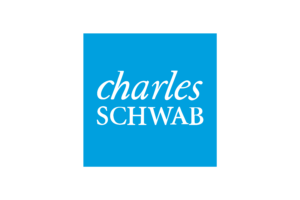
TL;DR: Understanding the differences between a Roth IRA vs 401(k) is essential for shaping your long-term savings and minimizing taxes in retirement. This blog breaks down how these accounts work, how they’re taxed, and which may better fit your goals depending on income, flexibility, and employer benefits.
- 401(k)s offer higher contribution limits and potential employer matches but are tied to workplace plans.
- IRAs provide more investment flexibility and control, with Roth IRAs offering tax-free withdrawals and no required minimum distributions (RMDs).
- Roth IRA vs traditional 401(k): Roth IRAs are taxed now but withdrawn tax-free; traditional 401(k)s defer taxes until retirement.
- Roth IRA vs Roth 401(k): Both use after-tax dollars, but Roth 401(k)s allow higher contributions while Roth IRAs offer more flexibility.
- Many retirees benefit from combining both for tax diversification and balanced retirement income.
Choosing between a workplace retirement plan like a 401(k) and an individual retirement account (IRA) can significantly affect your long-term savings and tax outcomes. Both options help you build wealth for retirement, but they differ in several significant ways. These include contribution limits, flexibility, employer benefits, and, most critically, tax treatment.
Understanding the differences can help you decide whether a Roth IRA or 401(k) is better suited for the lifestyle you envision post-retirement.
In this guide, we’ll break down the pros, cons, and tax implications of each. Continue reading to learn how to make your savings work smarter, both now and in the future.
What Is a 401(k)?
A 401(k) is an employer-sponsored retirement plan that allows you to save and invest a portion of your paycheck before taxes are taken out. Traditional 401(k) contributions are made pre-tax, lowering your taxable income today. Withdrawals are taxed as ordinary income in retirement.
A Roth 401(k) is distinct from a traditional 401(k). By contrast, this plan uses after-tax contributions. You pay taxes on contributions now, but qualified withdrawals in retirement are entirely tax-free. Employers can also offer matching contributions, which makes the 401(k) one of the most valuable benefits in any retirement package.
What Is an IRA?
An IRA, or Individual Retirement Account, is opened and managed independently. It offers you full control over where and how your money is invested. A traditional IRA allows for pre-tax contributions, reducing your taxable income today. Withdrawals in retirement are taxed as income.
A Roth IRA, on the other hand, is funded with after-tax dollars. You don’t receive an upfront tax deduction. However, your withdrawals in retirement, including any earnings, are generally tax-free. However, you must meet certain conditions to avoid taxation on retirement withdrawals.
Roth IRA vs 401(k): Key Differences
Roth IRA vs 401(k) operate differently in several ways, discussed below.
Contribution Limits
In 2025, you can contribute up to $23,500 to a 401(k). Plus, you may contribute an additional $7,500 if you’re 50 or older. For IRAs, the annual contribution limit is $7,000, with a $1,000 catch-up contribution for those age 50 or older.
The higher 401(k) limits make it ideal for accelerating retirement savings. In contrast, the IRA’s flexibility offers more overall investment control.
Employer Match
A major benefit of the 401(k) is the employer match, which is essentially “free money” added to your retirement account. Roth IRAs don’t offer this. Instead, they allow you to choose your own investment provider and strategy.
Income Eligibility
Roth IRAs have income limits that can restrict contributions for high earners, but Roth 401(k)s do not. Thus, the Roth IRA vs Roth 401(k) decision is especially critical for individuals in higher tax brackets.

Tax Implications: Now vs. Later
Understanding how each account is taxed is key to determining whether paying taxes now or later will leave you with more income in retirement.
Roth IRA vs Traditional 401(k)
The choice between a Roth IRA vs a traditional 401(k) often comes down to when you prefer to pay taxes.
With a Traditional 401(k), you contribute pre-tax and pay income taxes on withdrawals later. Many enjoy taking advantage of the immediate tax savings. With a Roth IRA, you pay taxes upfront, but your withdrawals are completely tax-free in retirement.
If you expect to be in a lower tax bracket during retirement, a traditional 401(k) may make sense. If you anticipate higher taxes later, a Roth IRA comes with improved long-term savings potential.
Roth IRA vs Roth 401(k)
Both Roth IRAs and Roth 401(k)s use after-tax contributions and offer tax-free withdrawals. However, Roth 401(k)s allow higher contributions and potential employer matches. In contrast, Roth IRAs offer more flexibility without required minimum distributions (RMDs) during your lifetime. Most agree that a Roth IRL offers wider investment choices.
Many retirees use both a Roth IRA and a Roth 401(k) to balance flexibility with the ability to save more each year.
Benefits of Roth IRA vs 401(k)
When comparing a Roth IRA vs 401(k), think of the 401(k) as a high-capacity savings vehicle and the Roth IRA as a flexible, tax-efficient companion. We’ll break down the advantages of each below.
Advantages of a Roth IRA
- Tax-free withdrawals in retirement (no tax on contributions or earnings after age 59 1/2).
- No required minimum distributions (RMDs) for the account owner.
- Freedom to choose investments across providers, not limited to an employer’s plan options.
- Easier access to contributions, including penalty-free withdrawals
Advantages of a 401(k)
- Higher contribution limits to accelerate savings.
- Employer match opportunities for additional growth.
- Automatic payroll deductions for convenience and consistency.
- Roth 401(k) option for after-tax savings and tax-free retirement income.
Which Is Better: Roth IRA or 401(k)?
There is no universal answer to the question of whether a Roth IRA or 401(k) is better. The right choice depends on your tax situation, income, employer benefits, retirement timeline, and ideal retirement lifestyle.
We recommend starting with your 401(k) match. If you contribute enough to get the full employer match, it’s an instant return on your money. From there, a Roth IRA can offer additional tax diversification and flexibility. It’s always best to combine both, if feasible. It makes it easier to manage your taxable income in a strategic way during retirement.
Let Elite Income Advisors Help You Decide
At Elite Income Advisors, we specialize in helping clients align their retirement savings with their long-term tax strategy. By combining expert guidance with data-driven planning, we help you design a retirement portfolio that’s built to support your retirement dreams.
Make informed decisions. Let us help you choose the right retirement path.
Learn more about our Retirement Planning services
EIA Income Advisors, Inc. is a registered investment adviser and only conducts business in jurisdictions where it is properly registered, or is excluded or exempted from registration requirements. Registration is not an endorsement of the firm by securities regulators and does not mean the adviser has achieved a specific level of skill or ability. The firm is not engaged in the practice of law or accounting.
We reserve the right to edit blog entries and delete comments that contain offensive or inappropriate language. Comments that potentially violate securities laws and regulations will also be deleted.
The information presented is believed to be factual and up-to-date, but we do not guarantee its accuracy and it should not be regarded as a complete analysis of any topics discussed. All expressions of opinion reflect the judgment of the authors on the date of the post and are subject to change. A professional adviser should be consulted before making any investment decisions. Content should not be viewed as personalized investment advice or as an offer to buy or sell any of the securities discussed.
All investments and strategies have the potential for profit or loss. Different types of investments involve higher and lower levels of risk. There is no guarantee that a specific investment or strategy will be suitable or profitable for an investor’s portfolio. There are no assurances that an investor’s portfolio will match or exceed a specific benchmark.
Historical performance returns for investment indexes and/or categories usually do not deduct transaction and/or custodial charges, or advisory fees, which would decrease historical performance results.
Hyperlinks on this blog are provided as a convenience. We cannot be held responsible for information, services, or products found on websites linked to our posts.
Annuity and life insurance guarantees are subject to the claims-paying ability of the issuing insurance company. If you withdraw money from or surrender your contract within a certain time after investing, the insurance company may assess a surrender charge. Withdrawals may be subject to tax penalties and income taxes. Persons selling annuities and other insurance products receive compensation for these transactions. These commissions are separate and distinct from fees charged for advisory services. Insurance products also contain additional fees and expenses.
Social Security rules and regulations are subject to change at any time. Always consult with your local Social Security office before acting upon any information provided herein.
Tax and legal information contained in this publication is general in nature and should not be relied upon as tax or legal advice. Always consult an attorney or tax professional regarding your specific legal or tax situation. Tax and pension rules are subject to change at any time.





